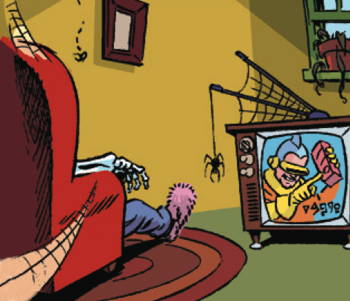July 2020
July 11, 2020
Little Baby’s Creepy Ice Cream Ads
Little Baby's existed as an ice cream company from 2011 to 2019. Their ads won them publicity, but I doubt they made many people want to try their product.More info: Wikipedia
The director explains how the ads were shot:
Posted By: Alex - Sat Jul 11, 2020 -
Comments (3)
Category: Food, Advertising
Human-Powered Flight
"Vélocipède aérien," proposed by Jean Jacques Bourcart, Paris, August, 1866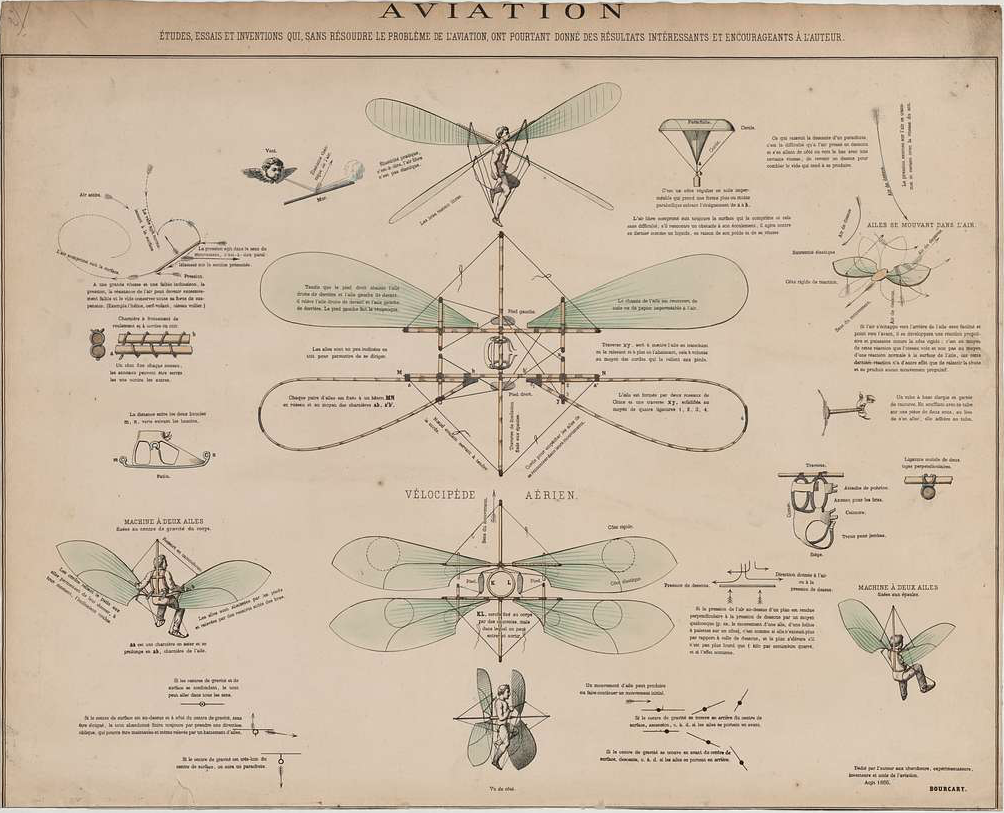
Source.
Posted By: Paul - Sat Jul 11, 2020 -
Comments (3)
Category: Death, Flight, Technology, Nineteenth Century
July 10, 2020
The 1902 penny craze
Sometime in late 1902, a rumor began to circulate that a worker at the mint, while making the 1902 pennies, had accidentally dropped a bar of gold into the copper. As a result, the 1902 pennies were worth more than a penny. The treasury would supposedly pay up to 18 cents for each penny. So people began frantically hoarding and stockpiling the 1902 pennies.Despite frequent denials by the treasury, the rumor persisted as late as the 1960s.
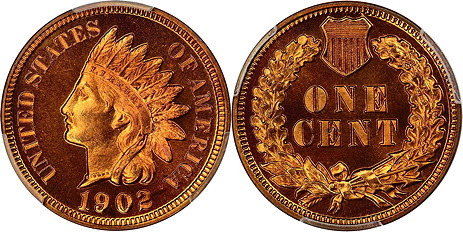
There are different theories about how the rumor began. The article below attributed it to a Brooklyn school superintendent. Another theory, offered over at coinbooks.org, said that it started as a joke told by a fish dealer named Alvah W. Haff:
On January 29, 1903, Mr. Haff bought 3,000 copper pennies from the bank. Someone who witnessed the transaction commented on the strange occurrence, and Mr. Haff jokingly explained that he was going to take the coins and get the gold out of them.
The story spread like wild fire and people began hoarding 1902 pennies.
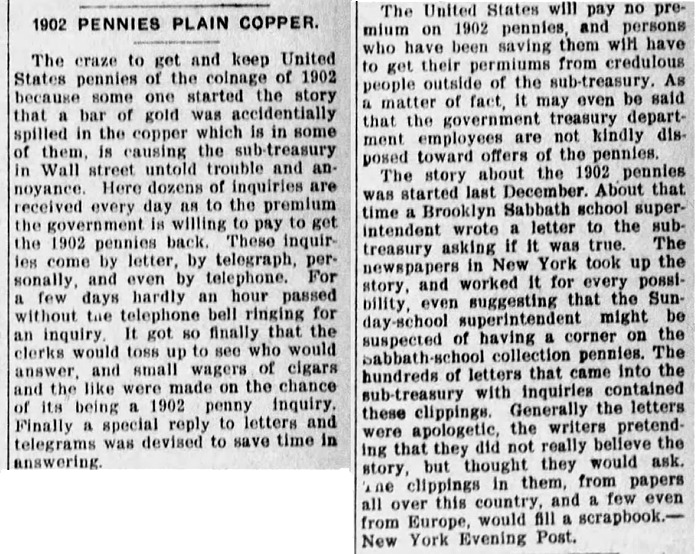
The Formoso New Era - Dec 11, 1903
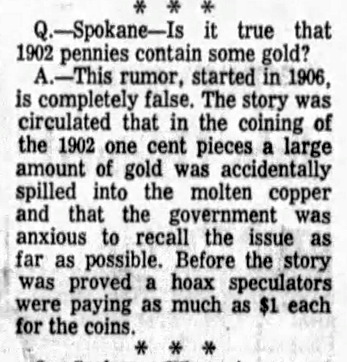
The Spokane Spokesman-Review - July 12, 1961
Posted By: Alex - Fri Jul 10, 2020 -
Comments (1)
Category: Confusion, Misunderstanding, and Incomprehension, Money, 1900s
Follies of the Madmen #482

A kind of housewife voodoo.
Source.
Posted By: Paul - Fri Jul 10, 2020 -
Comments (6)
Category: Business, Advertising, Appliances, 1950s, Christmas
July 9, 2020
The strange death of Frank Hayes
June 4, 1923: Jockey Frank Hayes suffered a heart attack and died while riding the horse Sweet Kiss in the steeplechase at Belmont Park. He nevertheless won the race.It's the only time that a horse race has been won by a dead jockey. And it's probably also the only time that a sports competition has been won by a dead contestant.
More info: wikipedia
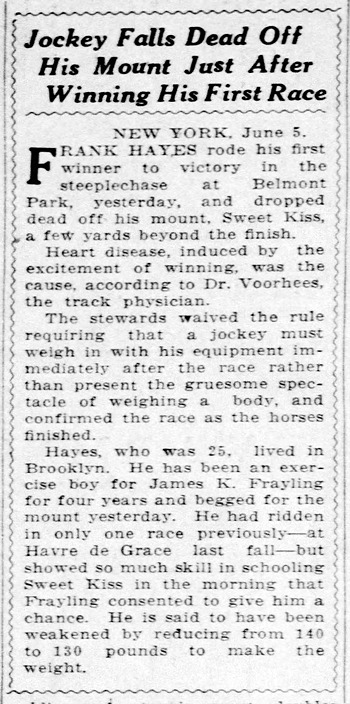
St. Louis Post-Dispatch - June 5, 1923
Posted By: Alex - Thu Jul 09, 2020 -
Comments (7)
Category: Death, Sports, 1920s
Laura Bullion, Pard to Butch Cassidy and the Sundance Kid
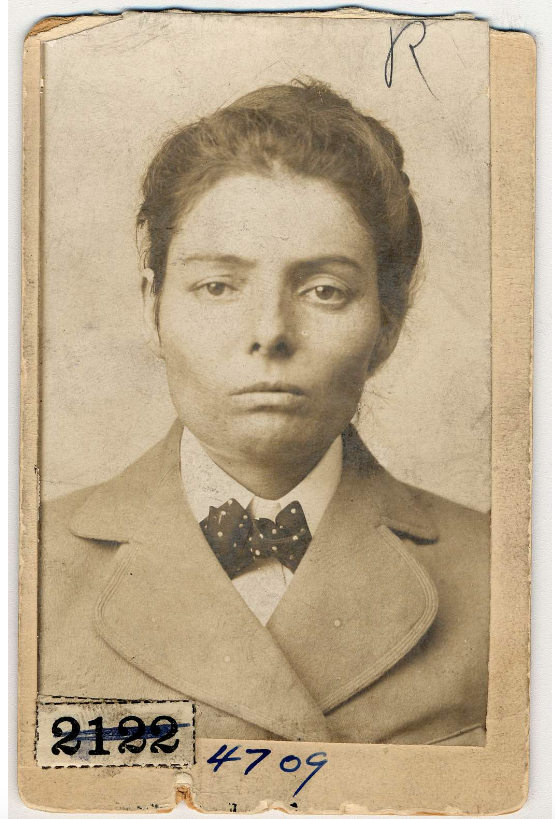
Wikipedia says:
Members of the Wild Bunch nicknamed Laura Bullion "Della Rose", a name she came by after meeting Kid Curry's girlfriend Della Moore. Often, Bullion also was referred to as the "Rose of the Wild Bunch". When her boyfriend Ben Kilpatrick and she fled east to evade the law after a train robbery in 1901, the couple traveled under the names "Mr. and Mrs. Benjamin Arnold".[7]
In an arrest report following the train robbery, dated November 6, 1901, Bullion's name is filed as "Della Rose" and her aliases are stated to be "Clara Hays" and "Laura Casey and [Laura] Bullion". The arrest report lists her profession as prostitute.[5] According to a New York Times article, she was "masquerading as 'Mrs. Nellie Rose' at the time of her arrest.[8] The same article also mentions the suspicion that she, "disguised as a boy", might have taken part in a train robbery in Montana. The paper cites Chief of Detectives Desmond: "I would'nt [sic] think helping to hold up a train was too much for her. She is cool, shows absolutely no fear, and in male attire would readily pass for a boy. She has a masculine face, and that would give her assurance in her disguise."[8] Instead of "Clara Hays", Bullion also used "Clare Hayes" or "Clara Hayes" as a version of her alias. Other assumed names she used at that time were "Desert Rose", "Wild Bunch Rose", and "Clara Casey".[7]
Her gravesite.
Posted By: Paul - Thu Jul 09, 2020 -
Comments (0)
Category: Crime, Regionalism, Women, Nineteenth Century, Twentieth Century
July 8, 2020
Danderine Grows Hair
As far as I know, Jeanette Wallace's only claim to fame was appearing in an ad for Danderine Hair-Growing Remedy. The ad ran in numerous magazines and newspapers between 1906 and 1908.She claimed that Danderine made her hair "fairly crawl out of my scalp"... which sounds like it could be the premise for a horror story.

Incidentally, according to Google maps, her address in New York is now occupied by a noodle shop.
Posted By: Alex - Wed Jul 08, 2020 -
Comments (8)
Category: Patent Medicines, Nostrums and Snake Oil, 1900s, Hair and Hairstyling
The Sampognaro
My source for this illo claims the musical instrument depicted is called a "sampognaro." Yet googling reveals no such creature.Who can help?
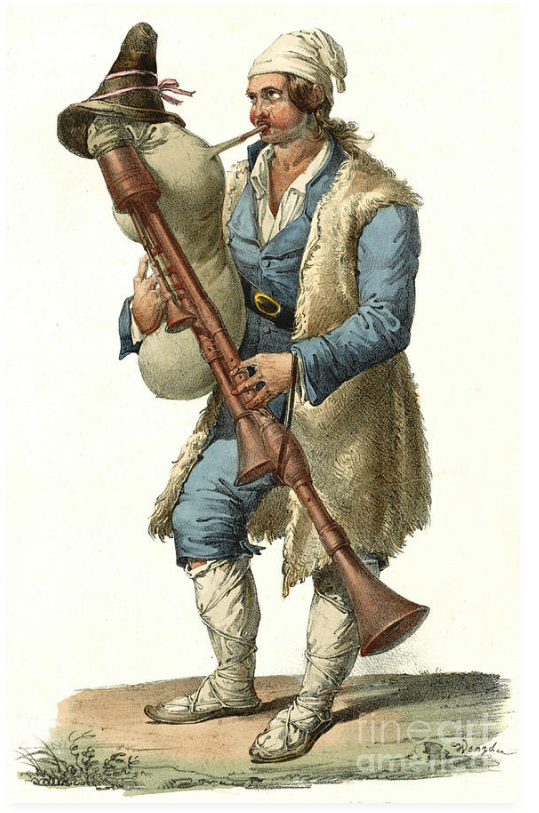
Posted By: Paul - Wed Jul 08, 2020 -
Comments (8)
Category: Music
July 7, 2020
The Quest For A Blonde Mistress
Publisher Emanuel Haldeman-Julius debuted his "little blue books" in 1919. These were cheaply bound, pocket-sized literary and academic works designed to make highbrow culture accessible to the masses. They sold for five cents each.Haldeman-Julius didn't do this for charity. He wanted to sell as many titles as possible, and to achieve this he would often alter the titles to make them more appealing to consumers. Basically, he would sex up the titles.
For example, he added the subtitle "The Quest for a Blonde Mistress" to Theophier Gautier’s novel The Fleece of Gold. Sales leapt from 6000 to 50,000 copies a year. (Apparently, 'quest for a blonde mistress' is an accurate description of the book's plot.)
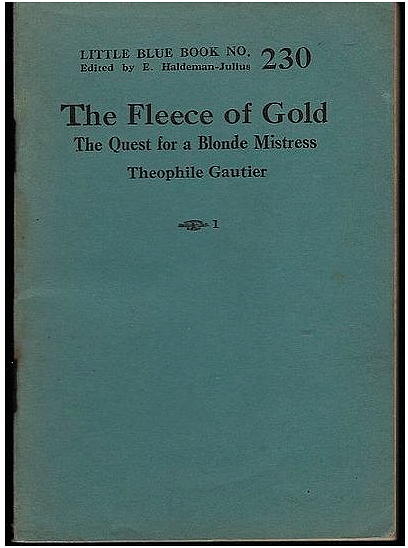
Other titles that benefitted from a title change:
• "The Tallow Ball" by Guy de Maupassant became "A French Prostitute's Sacrifice."
• None Beneath the King by José Zorrilla became None Beneath the King Shall Enjoy This Woman.
• Victor Hugo’s The King Amuses Himself became The Lustful King Enjoys Himself.
Haldeman-Julius didn't always make the titles more risque. Sometimes he emphasized self-improvement, and that also had a positive effect on sales. For example, sales of Thomas De Quincey’s Essay on Conversation jumped when it was renamed How To Improve Your Conversation. Similarly, Arthur Schopenhauer’s Art of Controversy became How to Argue Logically. And Dante and Other Waning Classics became Facts You Should Know About the Classics.
Haldeman-Julius was totally open, even boastful, about this strategy. From his book The First Hundred Million:
Posted By: Alex - Tue Jul 07, 2020 -
Comments (3)
Category: Literature, Books
Squatter, the Sheep-Raising Game
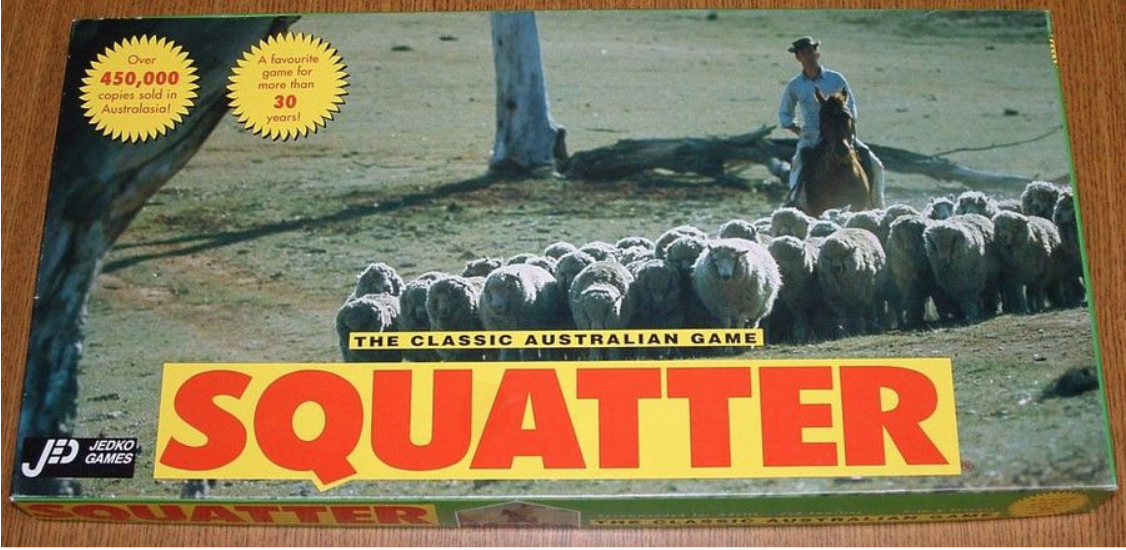
Entry at games database, with pix.
Wikipedia page.
"Some board games turn up the tension so high you practically sweat through your clothes. Squatter, an Australian import which brings home the high-stakes world of sheep-herding, is probably not one of them."
Posted By: Paul - Tue Jul 07, 2020 -
Comments (0)
Category: Animals, Farming, Games, Australia
| Get WU Posts by Email | |
|---|---|

| Who We Are |
|---|
| Alex Boese Alex is the creator and curator of the Museum of Hoaxes. He's also the author of various weird, non-fiction books such as Elephants on Acid. Paul Di Filippo Paul has been paid to put weird ideas into fictional form for over thirty years, in his career as a noted science fiction writer. He has recently begun blogging on many curious topics with three fellow writers at The Inferior 4+1. Chuck Shepherd Chuck is the purveyor of News of the Weird, the syndicated column which for decades has set the gold-standard for reporting on oddities and the bizarre. Our banner was drawn by the legendary underground cartoonist Rick Altergott. Contact Us |
